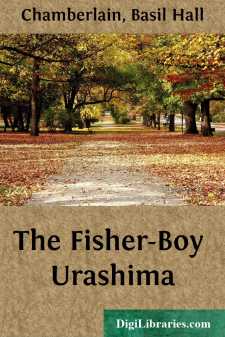Categories
- Antiques & Collectibles 13
- Architecture 36
- Art 48
- Bibles 22
- Biography & Autobiography 813
- Body, Mind & Spirit 142
- Business & Economics 28
- Children's Books 15
- Children's Fiction 12
- Computers 4
- Cooking 94
- Crafts & Hobbies 4
- Drama 346
- Education 46
- Family & Relationships 57
- Fiction 11828
- Games 19
- Gardening 17
- Health & Fitness 34
- History 1377
- House & Home 1
- Humor 147
- Juvenile Fiction 1873
- Juvenile Nonfiction 202
- Language Arts & Disciplines 88
- Law 16
- Literary Collections 686
- Literary Criticism 179
- Mathematics 13
- Medical 41
- Music 40
- Nature 179
- Non-Classifiable 1768
- Performing Arts 7
- Periodicals 1453
- Philosophy 64
- Photography 2
- Poetry 896
- Political Science 203
- Psychology 42
- Reference 154
- Religion 513
- Science 126
- Self-Help 84
- Social Science 81
- Sports & Recreation 34
- Study Aids 3
- Technology & Engineering 59
- Transportation 23
- Travel 463
- True Crime 29
Aino Folk-Tales
Categories:
Description:
Excerpt
INTRODUCTION.
Twelve hundred years ago a Chinese historian stated that "on the eastern frontier of the land of Japan there is a barrier of great mountains, beyond which is the land of the Hairy Men." These were the Aino, so named from the word in their own language signifying "man." Over most of the country of these rude and helpless indigenes the Japanese have long since spread, only a dwindling remnant of them still inhabiting the island of Yezo. Since the early days when a couple of them were sent as curiosities to the Emperor of China their uncouth looks and habits have made them objects of interest to more civilised nations. Many European writers have described them, but hardly any with such opportunities as Mr. Basil Hall Chamberlain, Professor of Philology at the Tà Âkyà  University, who has taken down from the Ainos the present collection of their tales, and prefaced it with an account of their ways and state of mind. It would hardly be for me to offer information on a subject so excellently handled, but the request of the Editor of the Folk-Lore Journal that I would write an Introduction enables me to draw attention to the views put forward by Professor Chamberlain in another publication, which, being printed in Japan, may be overlooked by many English folk-lore students, even of those interested in the curious Aino problem.
As is well known, the hairiness of the Ainos marks them sharply off from the smooth-faced Japanese. No one can look at photographs of Ainos without admitting that the often-repeated comparison of them to bearded Russian peasants is much to the purpose. The likeness is much strengthened by the bold quasi-European features of the Ainos contrasting extremely with the Japanese type of face. Of course all this has suggested a theory of the Ainos belonging to the Aryan race; and, although the idea comes to nothing when examined strictly, its existence is an acknowledgment of the special Aino race-type. Mention must also be made of an anatomical peculiarity of the Aino skeleton, consisting of a remarkable flattening of the arm-and leg-bones. On the whole it is evident that the Ainos are an ancient race in this part of Asia, and so far isolated that anthropology has not yet the means of settling their physical connection with other Asiatic tribes. Professor Chamberlain's careful examination of the Aino language leads him to a similar result. It is made not only from his own knowledge, but with the advantage of working with the Rev. John Batchelor, who has lived as a missionary among the Ainos for years, and written the Grammar printed as a part of these Aino Studies. In structure the resemblances which the Aino presents to Japanese are outweighed by the differences; and, though it may ultimately prove to fall into a north-east Asiatic group of languages, this is so far from being made out that it is safest for the present to treat both race and language as isolated. Inasmuch as the little civilisation now possessed by the Ainos has in great measure been learnt from the Japanese, it is natural that their modern language should have picked up numbers of Japanese words, from the name of kamui which they give to their gods, down to the rice-beer or sake in which they seek continual drunkenness, now their main source of enjoyment....





